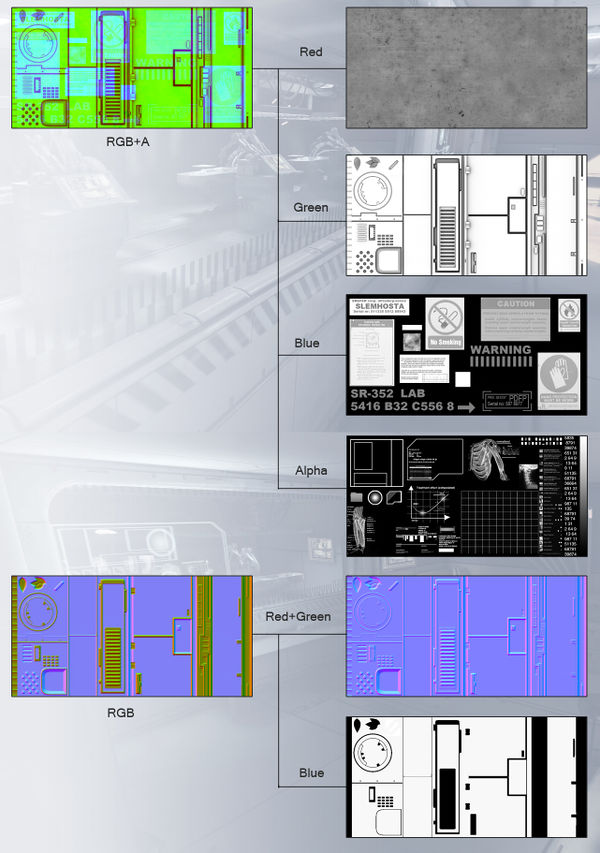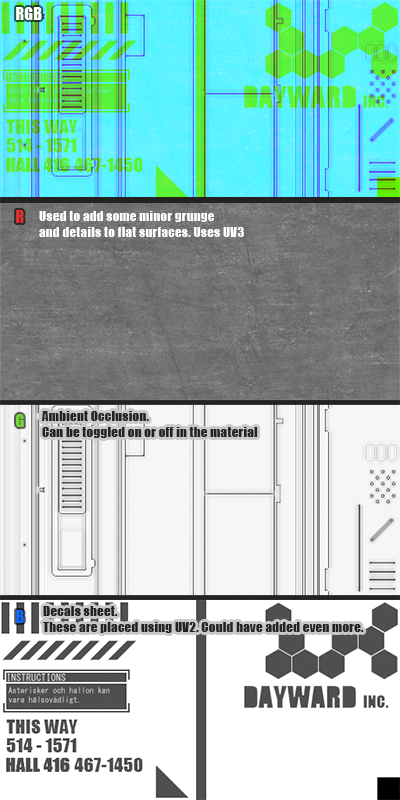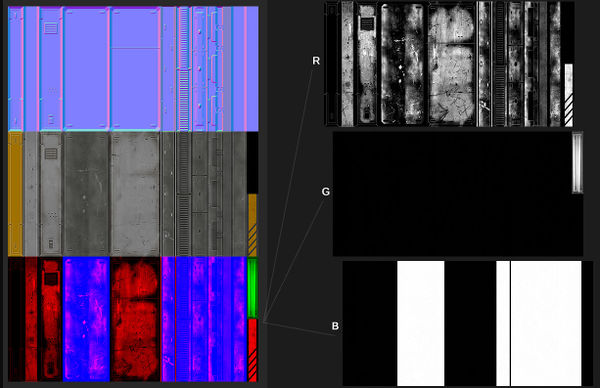Difference between revisions of "ChannelPacking"
EricChadwick (Talk | contribs) (More Information, order of the headings) |
EricChadwick (Talk | contribs) |
||
| Line 19: | Line 19: | ||
== Compression Artifacts == | == Compression Artifacts == | ||
| − | If you save a channel-packed texture using [[DXT]] compression, it will probably add blocky artifacts to your maps. To learn how to reduce these errors, see [[ | + | If you save a channel-packed texture using [[DXT]] compression, it will probably add blocky artifacts to your maps. To learn how to reduce these errors, see [[Normal Map Compression]]. |
| Line 30: | Line 30: | ||
== More Information == | == More Information == | ||
* [[MultiTexture]] | * [[MultiTexture]] | ||
| − | * [[ | + | * [[Normal Map Compression]] |
* [[Shaders]] | * [[Shaders]] | ||
* [[Texture atlas]] | * [[Texture atlas]] | ||
Revision as of 07:11, 20 May 2015
Channel packing means using different grayscale images in each of a texture's image channels... Red, Green, Blue, and optionally Alpha.
These channels are usually used to represent traditional RGB color data, plus Alpha transparency. However each channel is really just a grayscale image, so different types of image data can be stored in them.
Individual channels can be extracted by a shader to use them for particular effects, for example the red channel for glow, green channel for specular, blue channel for sound types, alpha channel for physics info, etc. Each channel can have a totally different layout, and thus use different UVs.
Games use this technique to avoid loading separate grayscale images, which saves Memory. The tradeoff is in increased shader complexity.
Examples



Compression Artifacts
If you save a channel-packed texture using DXT compression, it will probably add blocky artifacts to your maps. To learn how to reduce these errors, see Normal Map Compression.
Tools